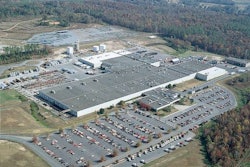
The American Trucking Associations on Monday, April 19, applauded Senate Agriculture Committee Chairwoman Blanche Lincoln (D-Ark.) for introducing a strong derivatives market reform bill to curb excessive commodity speculation while protecting the ability of the trucking industry to hedge its exposure to increased fuel prices. The legislation will be marked up as soon as Wednesday, April 21, and could be attached to the comprehensive Financial Reform Legislation.
“The trucking industry appreciates Sen. Lincoln’s leadership on this critical piece of legislation that will increase transparency in energy markets and reign in excessive speculation,” says ATA Vice President Rich Moskowitz. “The legislation will help ensure that fuel prices are linked to the market forces of supply and demand.”
ATA says the bill is a major step toward preventing another energy bubble like the one witnessed during summer 2008. According to ATA, the lack of transparency for derivatives markets and exemptions for speculators, derivatives dealers and other financial players have made it difficult for the Commodity Futures Trading Commission to effectively regulate and oversee commodity markets, which determine the price for crude oil, gasoline and home heating fuels.
Lincoln’s legislation includes mandatory clearing and trading requirements and real-time reporting of derivatives trades that will close existing loopholes in the energy futures markets. The draft legislation reins in financial players, like hedge funds and insurance companies, that speculate in energy derivatives by creating centralized clearing and aggregate position limits, while leaving an exemption from clearing and exchange trading requirements for legitimate commercial hedgers like trucking companies, petroleum marketers, utilities, airlines and farmers.
“Diesel fuel is the lifeblood of the trucking industry, and sudden fluctuations in operating expenses, especially fuel, can devastate trucking companies,” Moskowitz says. “Increasing transparency and setting position limits while preserving the ability of commercial entities to hedge fuel purchases will strengthen the link between commodity prices and market fundamentals.”
ATA says a one-cent increase in the average price of diesel costs the trucking industry an additional $340 million a year in fuel expenses. Fleets spent $146 billion on fuel in 2008, a $32 billion increase from 2007 and more than double the amount spent in 2004.










